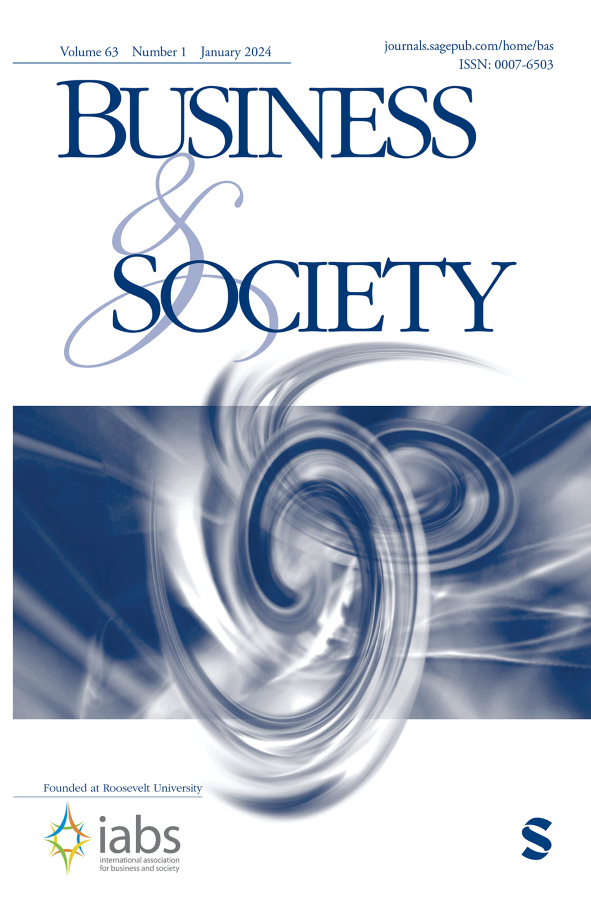企业可持续发展中悖论应对的结果:定性元分析
IF 6
3区 管理学
Q1 BUSINESS
引用次数: 0
摘要
悖论理论提供了一种独特的方法,通过这种方法可以解决企业可持续发展(CS)中复杂且经常相互冲突的问题。尽管越来越多的文献关注于悖论式可持续发展方法在组织层面的成果,但我们对这种方法如何为组织之外的可持续发展(社会可持续发展)做出商业贡献的了解较少。本研究通过对 32 个实证案例研究进行定性荟萃分析,填补了这一研究空白。虽然所分析的研究证实,从组织的角度来看,悖论法管理 CS 紧张局势是有效的,但对社会可持续发展的贡献却含糊不清。这一发现促使我们创建了一种反应-结果路径类型学。这些路径说明了企业社会责任悖论应对措施的社会可持续性结果在三个因素的调节作用基础上的差异:对可持续发展的承诺水平、利益相关者参与的方法以及战略与实践的一致性水平。这一分析为企业社会责任悖论观点提供了重要的边界条件,从而改变了人们普遍认为悖论方法会导致企业对可持续发展做出卓越贡献的假设,并强调了研究现有企业社会责任方法在组织之外的结果的必要性。本文章由计算机程序翻译,如有差异,请以英文原文为准。
Outcomes of Paradox Responses in Corporate Sustainability: A Qualitative Meta-Analysis
Paradox theory offers a unique approach through which the complex and often conflicting aspects of corporate sustainability (CS) can be addressed. Although a growing body of literature has focused on the organizational-level outcomes of a paradox approach to sustainability, we know less about how such an approach creates business contributions to sustainable development beyond the organization (societal sustainability). The present study addresses this gap in research through a qualitative meta-analysis of 32 empirical case studies. While the analyzed studies confirmed the effectiveness of a paradox approach to managing CS tensions from an organizational perspective, indications of contributions to societal sustainability were ambiguous. This finding led to the creation of a typology of response–outcome pathways. These pathways illustrate variations in the societal sustainability outcomes of CS paradox responses based on the moderating effects of three factors: level of commitment to sustainability, the approach to stakeholder engagement, and the level of strategy–practice alignment. This analysis contributes to the CS paradox perspective by offering important boundary conditions to the commonly held assumption that a paradox approach leads to superior business contributions to sustainability and highlights the need for research that examines outcomes of extant CS approaches beyond the organization.
求助全文
通过发布文献求助,成功后即可免费获取论文全文。
去求助
来源期刊

Business & Society
BUSINESS-
CiteScore
14.80
自引率
11.40%
发文量
56
期刊介绍:
Business & Society publishes original research, book reviews, and dissertation abstracts relating to business ethics, business-government relations, corporate governance, corporate social performance, and environmental-management issues. Manuscripts relating to the field of business and society in general are also published. Submissions of theoretical/ conceptual work as well as empirical studies are encouraged. Business & Society is the first peer-reviewed scholarly publication devoted exclusively to the field of business and society, and it is the official journal of the International Association for Business and Society (I.A.B.S.), the only independent professional association dedicated to business and society teaching and research.
 求助内容:
求助内容: 应助结果提醒方式:
应助结果提醒方式:


